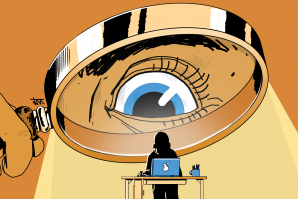I have always had a bit of imposter syndrome, but now it is at an all-time high after changing industries. I am a “senior leader” in a small org but may be more of a generalist. No amount of “you got this” or “you’re doing fine” can change this. My strengths are not what this organization needs, and finding another job is very difficult. Maybe that’s not the problem. I don’t want to decide someone’s salary or the cost of their benefit plan anymore.
There’s a lot going on here! Imposter syndrome, while real, is only a part of what you’re experiencing. So let’s break it down.
First, what is imposter syndrome? The term was coined in the 1970s to describe that feeling of inadequacy when you aren’t really inadequate. The BBC put together a list of three things that indicate imposter syndrome. They are:
Belief that other people have an inflated view of your skills and abilities
Intense fear that you’ll be found out and exposed as a fake
Crediting your own successes to factors outside your talents and abilities
Let’s tackle all three of these about your current situation.
You believe that other people have an inflated view of your skills and abilities.
You just got this new job as a senior leader, and it’s in a new industry. Someone else — your boss and probably a committee — all thought you could do this! You secretly believe you can’t. Somehow, you bluffed your way into this job!
Here’s the reality: The HR market right now is tight. You know this because you don’t feel like you can just pop out and get a new job. There were probably at least 10 qualified candidates, if not 100. They interviewed, you answered, and you got the job. They knew this was a change of industry, and they hired you anyway.
If you lied in the interview or fudged your record on your resume and LinkedIn profile, they think you are more than you are; but if you didn’t, you’re all good.
You have an intense fear that you’ll be found out and exposed as a fake.
You mentioned that you’re in a senior leadership role but are more of a generalist. Just what do you think a generalist is? It’s an HR professional who does a little bit of everything. Frankly, it’s a much more complex role than specialist roles. In a specialist job, you do one thing all day, every day. Not that those things are easy, but you can rapidly become an expert in that one thing.
As a former generalist, you’re the person I’d want in a leadership role. You can support the employee relations people because you’ve done employee relations. You can evaluate the effectiveness of a benefits package because you’ve talked with employees who are struggling with their health or finding money to pay for daycare.
If you’re afraid people will find out you’re just a generalist, remember, that’s why they hired you. You know the profession. You can learn the industry. That’s the easy part.
You credit your own successes to factors outside your talents and abilities.
People are telling you, “You’ve got this,” and “You’re doing fine,” and all you can think of is that you pulled the wool over your boss’s eyes, and you don’t have it, and you’re not doing fine. Maybe you’ve considered that you were the only one who applied, and so they were desperate.
To be fair, in my first professional HR job, I was the only one who applied with a particular skill they needed — statistics — and I was otherwise unqualified. And you know what? My boss told me straight out, “We only hired you because you could do statistics, and I’ll have to teach you everything else.”
Unless your boss told you otherwise, you’re qualified based on your knowledge, skills and abilities. Your strengths are precisely what they needed, so they hired you.
You didn’t get this job because of your grade-school connections, who your mom is or some juicy piece of blackmail you have on the CEO. You got it because many people evaluated you and said, “Hey, she’s the best person for the job.”
But you feel what you feel.
Your feelings aren’t always right. You were totally smitten with that boy in your freshman English class, and boy, were you wrong about him. (Not based on a true story.) You are the boss of yourself. Tell your feelings to shut up.
You got this job because you’re good at what you do. You are completely capable of learning the new industry you are in. Asking questions about how things operate is normal and not an indication that you aren’t capable.
No one knows everything, but you know enough. And, yes, it’s difficult. That means you’re improving yourself. So go work hard and be confident. You’re the right person for the job.
Have a dilemma for the Evil HR Lady? Send questions to evilhrlady@gmail.com.
–
Stay up to date on business in the Capital Region: Subscribe to the Comstock’s newsletter today.
Recommended For You

Dilemma of the Month: Do I Have to Use My PTO for Appointments?
A salaried employee works over 50 hours a week, but her manager
still insists that she use PTO to cover a half-day appointment.
Is this legal?

Dilemma of the Month: Am I Too Aggressive, or Is My Accuser Being Sexist?
“After working in HR for 30 years, I was told today that I was
‘too aggressive’ and that I came across as if I had an
agenda. I have never had someone say this to me before…” Is he
right? Evil HR Lady weighs in.

Dilemma of the Month: How Do I Deal With a Micromanager?
Boss always looking over your shoulder? Evil HR Lady says
they may be a control freak, or it could be due
to poor performance on your end. Here’s how to move
forward.




